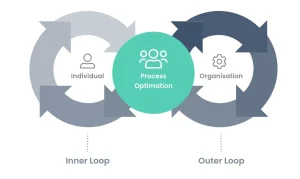Family conflicts often extend beyond emotional strain, particularly when legal matters come into play. Whether it’s the dissolution of a marriage or the allocation of parenting responsibilities, families are often left with difficult choices to make. The legal aspects of these disputes can be complex, but knowing what to expect can make the process more manageable. It’s important to seek professional guidance when navigating these challenges to ensure that decisions are made in the best interest of all parties involved.
Divorce and Property Settlements
One of the most common legal issues families face is divorce, which can lead to numerous disputes over the division of assets. The separation of property is rarely straightforward, and disagreements can easily arise over who is entitled to what. Understanding how property is divided during divorce is crucial. It’s not just about splitting things in half; factors like financial contributions, non-financial contributions, and future needs all play a role in determining the outcome.
Additionally, it’s essential to understand that the emotional impact of divorce often complicates property settlement negotiations. When emotions run high, it’s easy for disagreements to escalate, making legal guidance particularly valuable during this process.
Legal disputes within families can bring about emotional and financial challenges, especially when navigating complex issues like custody or inheritance. Having the right legal representation can help ease these burdens and ensure a fair resolution. For professional legal support, consider reaching out to the Law Office of Michael Ephraim Fairfax, where expert attorneys provide guidance tailored to your specific situation. Visit their website for more information on how they can assist you.
Child Custody Disputes
Child custody battles are another area where family legal matters can become especially challenging. When parents cannot agree on custody arrangements, courts often need to intervene. The court’s primary concern is the best interests of the child, but this can be interpreted in different ways depending on the circumstances.
While some cases involve amicable agreements where both parents share parenting responsibilities, others may become more contentious. In such instances, having a strong legal advocate is critical. Not only can they help you understand your rights as a parent, but they can also help ensure that the child’s welfare remains the priority throughout the proceedings.
Many parents find themselves unsure of how to approach the legal process. It can be beneficial to consult family lawyers in Sydney who have experience in handling complex custody disputes and can offer guidance based on local laws and regulations.
The Role of Mediation
In many cases, family legal disputes can be resolved through mediation rather than going to court. Mediation offers a less adversarial approach to conflict resolution, allowing both parties to work together to reach a mutually agreeable solution. This process is often faster, less expensive, and less stressful than going through the court system.
Mediation is particularly useful in cases where both parties are willing to cooperate but need some assistance in reaching a fair outcome. A neutral mediator helps facilitate the conversation, ensuring that both sides have the opportunity to voice their concerns and preferences. This process can be especially helpful for parents who want to avoid a prolonged custody battle, as it allows them to work out a parenting plan that suits both their needs and the child’s.
Taking the Next Steps
Facing legal challenges within a family can feel overwhelming, but having the right support can make all the difference. Whether you’re dealing with a complex property settlement or a heated custody dispute, having a knowledgeable family lawyer by your side can provide the clarity and guidance you need to move forward.
As you consider your options, it’s important to also think about how legal decisions will impact your family’s future. For example, researching financial planning for post-divorce life can help you prepare for the changes that come with starting a new chapter. Taking proactive steps now can help ensure a smoother transition and protect your long-term financial well-being.











